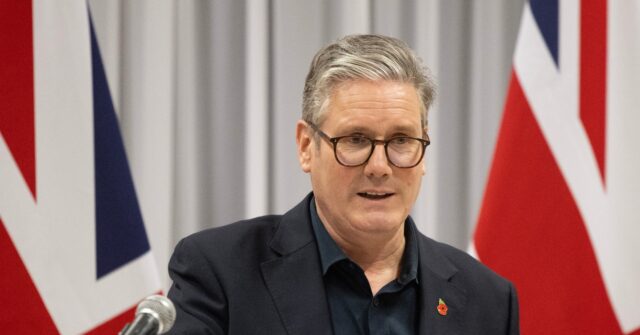In response to a significant rise in illegal boat migrants landing on British shores, Prime Minister Sir Keir Starmer has announced an additional £75 million funding package aimed at addressing the ongoing crisis. The government’s strategy does not include the controversial tactic of returning migrant boats to France, which has been suggested by critics and has previously been utilized by other countries like Australia. Instead, Starmer’s Labour Party plans to harness law enforcement tactics to target the trafficking networks responsible for sending primarily young men across the English Channel in small dinghies. With the onset of winter making maritime activities increasingly perilous, the focus of the government’s initiatives is expected to shift as the issue steps back from immediate media scrutiny.
Starmer’s approach seems to rely heavily on lawfare, intending to disrupt and dismantle the smuggling operations rather than employing direct measures to return migrants. He has articulated a comparison between the smuggling gangs operating in the Channel and terrorist organizations, signaling that tackling this issue is as critical as addressing national security threats. He emphasized this point during his address at the Interpol general assembly in Glasgow, reinforcing his administration’s commitment to strengthening border security. Starmer’s past experience as the director of public prosecutions has lent him a strong interest in tackling organized crime, and he has pledged to apply similar vigor to dismantling people-smuggling networks.
The additional funding will be allocated to enhancing the capabilities of the Border Security Command (BSC), with plans for increased surveillance, enforcement, and new maritime drones aimed at monitoring smuggling operations off the French coast. Additionally, the Crown Prosecution Service (CPS) will receive extra funding to bolster its capacity for prosecuting smuggling cases. The initiative includes efforts to expedite legal proceedings for those involved in trafficking, with hopes that swift justice will deter both smuggling operations and related anti-migration protests. Home Secretary Yvette Cooper has voiced her support for this multifaceted approach, advocating for collaborative efforts with neighboring countries facing similar challenges.
However, skepticism surrounds the effectiveness of Starmer’s proposed strategies. Critics like Richard Tice, deputy leader of Reform UK, have pointed out parallels between the current government’s plans and failed initiatives targeting drug cartels, suggesting that merely increasing funding and resources may not yield the desired results. Additionally, the Labour government has faced backlash for abandoning previous projects aimed at addressing illegal immigration, such as the now-scrapped plan to send migrants to processing centers in Rwanda. The reluctance to withdraw from the European Convention on Human Rights has also been a point of contention, as this legal framework is often leveraged by migrants to contest deportations.
Despite Starmer’s assurances to “smash the gangs” and improve border security, the realities on the ground reflect an ongoing crisis, as evidenced by the rising number of illegal crossings since his administration commenced. In the first four months of Starmer’s tenure, over 17,000 migrants landed in the UK, surpassing figures from the same period the previous year and indicating a troubling trend. The rising statistics underline the complexities involved in combating illegal migration, as expectations for the effectiveness of the proposed funding and initiatives remain uncertain in light of these statistics.
As the winter months approach and the situation evolves, the balance between security and humanitarian considerations will likely remain a contentious issue for the Starmer administration. The government’s focus on preventing illegal crossings and tackling human trafficking networks may garner public support, but achievable outcomes will be scrutinized against the backdrop of rising migration figures. Ultimately, the success of this new approach will hinge on Starmer’s ability to not only implement policy changes but also to navigate the various legal, operational, and international challenges that accompany them. As public concerns about border security grow, all eyes will remain on the government’s response and their effectiveness in the face of a complex migration landscape.

